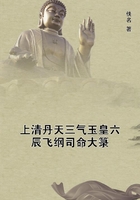Like the separate local gild privileges, the local town privileges still maintained themselves unimpaired; the most that could be gained by the electoral government was, that the burgesses of other Brandenburg towns should be treated a little better than men from Stettin or Breslau. It needed an ordinance of the prince in 1443(11*) to open the Frankfurt Leather Fair to the Berlin shoemakers; and the Elector added, apologetically, that this should not prejudice the claims of the shoemakers of other towns who had not yet frequented the Frankfurt fair. The surrender of inheritances by one town of the Mark to another, without the enormous withdrawal-charges hitherto made, was the gradual result of treaties between the towns themselves. As late as 1481 the men of Spandau introduced a high withdrawal tax, in order to prevent their rich men from trying to get burgess-rights in Berlin and transferring themselves thither.(12*)Thus the question at issue was not, at the outset, whether the various town privileges should be blended in one body of rights enjoyed equally by every citizen of the territory, but simply whether the princely government should secure a moderate increase of its power as against each particular town. Efforts in this direction are to be seen in the approval by the prince of the town councillors, the enquiries into their administration, beginning about 1600, and the practice of granting special privileges and concessions. This last had gained a firm foothold from about 1500; and in some respects it prepared the way for, and helped to create, that right of issuing general ordinances which was recognized as belonging to the prince in the seventeenth and eighteenth centuries. The charters of privilege with regard to markets and mills, apothecaries, printers, copper-hammers, paper mills, and the like, the concessions made to persons establishing industries in connection with their estates, the personal permits issued to individual artisans and dealers of all sorts, allowing them to carry on their business without being members of a gild, - these were all mere inroads by the prince into the exclusive town economy; and yet, if they were only numerous enough, they necessarily made the territorial authority, rather than the town council, the chosen guide of the people in its economic life.
But the princely power not only obtained an increase of its influence in these individual cases; it had the same experience more widely, in its character of mediator and peacemaker.
Abundant opportunity was presented for its intervention by the conflicts between town and country, which were especially bitter in the northeast of Germany. The old regulation of the town market, the mileright, the prohibition of industry in the country, the obligation imposed, if possible, by every town upon the people of the vicinity to carry thither all their produce and buy there all they needed, - all this gave frequent occasion for intervention. The proceedings of the territorial assemblies from the fifteenth to the seventeenth centuries in Brandenburg, Pomerania, and Prussia are largely occupied with matters of this sort. The rural districts, and the squires (die Ritterschaft) in their name, complain that the countryman is shamefully cheated when he comes to sell his corn, wool, and cattle in the neighbouring town, that price-lists are drawn up without the assistance of representatives of the squires, that they are overreached in weight and measure, that the craftsmen unite against them, that countrymen are prevented from selling to strangers and dealers at their own doors, that all the legislation as to markets and forestalling is devised to their hurt, as in the rules against Scotch and Nuremberg peddlers, that the towns receive runaway peasants, without license from their lords, that the gilds want to pursue concealed craftsmen in the country without paying any regard to the court of the lord of the manor (das Gericht des Gutsherrn), that by the prohibition of brewing in the country peasants and knights are compelled to buy beer in the towns and are there overcharged, that people have to make payments in barley when it would be more profitable to export it, and so on, and so on.
The towns take their stand on their "good old laws," upon their privileges, which, they declare, are being continually encroached upon by permits to country craftsmen, by country brew-houses, by foreign peddlers, loose rabble, horse dealers, and cattle dealers; the nobility themselves, they say, carry on trade, buy the peasants' produce and sell it to travelling dealers, and get the iron and other things they need from the Scots; moreover, the nobles claim the right of exporting their produce whenever they like, to the hurt of the towns. Not content with this, the towns complain of the government itself, - that it sells the wood of its forests dearer to the towns than to its vassals, that it authorises foreign dealers and peddlers, that it is not sufficiently severe and exclusive in its treatment of the Jews, and that it does not keep the nobles out of trade.
When matters like these were being all the time dealt with in the legislative assemblies in long-winded memorials and counter-memorials, it was natural that the municipal prohibitions of export or import, and the prohibitory regulations of the town should play an important part in the discussions. It was not a matter of indifference to the rural districts in Pomerania and Magdeburg if one fine day the council of Stettin prohibited the export of corn, and it was of the greatest moment to the townsmen whether the nobility could claim exemption. from such a prohibition. It was of importance for the whole country that, in East Prussia, at the beginning of the fifteenth century, each country-town could impose a prohibition of export on the neighbouring country-town without waiting for the sanction of the High Master (Hochmeister).















